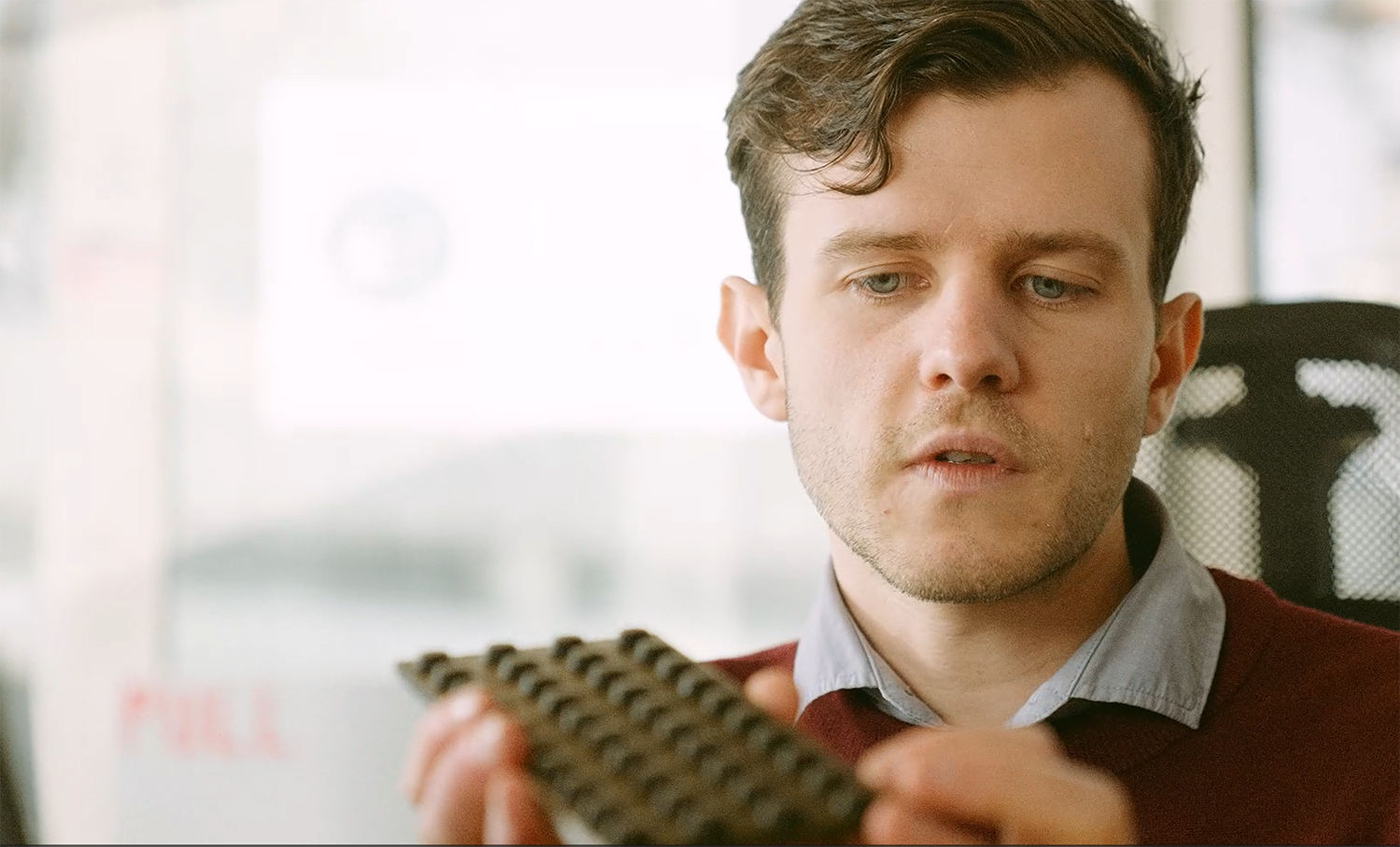
Turning ideas into innovations
Entrepreneurial spirit is a key driver of development in business and science. With the ICM Accelerator, the InnovationCampus Future Mobility (ICM) now offers a program designed to awaken this characteristic in young researchers and promote the founding of start-ups.
A repairable e-bike battery with replaceable battery cells - an idea that embodies the sustainable mobility of the future. And as a student at the Karlsruhe Institute of Technology (KIT), Theo Seiler simply could not imagine that no manufacturer would produce something like this yet. But it is like this. Thanks to Seiler and his colleagues, perhaps not for much longer. Because they founded MoThor Batteries GbR in 2020 while still master's degree candidates to advance the development of a repairable rechargeable battery. "During your studies, you still have nothing to lose and the chance to implement your own ideas," says Seiler. In the meantime, he and his team are about to take the step from a partnership to a corporation, which means the conversion to a GmbH (limited liability company). Along the way, they have gone through various support programs for young students with an entrepreneurial spirit. Without this combination of university graduates with drive and individual targeted support, many good ideas would fail to be implemented. This is why there is, for example, the Transfer Center or the ENI at the University of Stuttgart and the Gründerschmiede at KIT. To give research transfer even more impetus, the InnovationCampus Future Mobility (ICM) is now also getting involved with the ICM Accelerator. The funding program is intended to help outstanding ideas find their way to implementation in order to strengthen the innovative power of the state of Baden-Württemberg.

Entrepreneurial thinking creates innovation in university operations
"With the Accelerator, we want to bring entrepreneurial thinking into the heads of young scientists at an early stage. Because this helps them not only as employees in companies or as founders of startups, but already in research projects at universities," explains Sandra Kaufmann-Weiß, Managing Director of the ICM at KIT. Therefore, the Accelerator will also start on June 12 with the Intrapreneur Program for graduates or PhD students and postdocs who are researching outstanding solutions around mobility and related production. Through the program, they can learn how to drive innovation better and faster within universities. To this end, the ICM offers them access to a network of experienced mentors and experts who support the participants in developing and implementing their ideas. In a total of six modules, there are workshops and training sessions on topics such as lean prototyping, cooperation and feedback, and stakeholder management. In other words, the program will cover the entire spectrum of entrepreneurial activity - from organizational forms to the convincing presentation of projects that can be used to win over decision-makers from universities and research partners from industry.
The team of MoThor Batteries knows exactly how valuable programs like the ICM Accelerator are. After all, they have a long list of participants in similar programs: axel - Energy Accelerator, workshops and events of the university group PionierGarage or the KIT Gründerschmiede, and many more. "We have acquired a lot of knowledge and competencies there, which we also benefit from in our studies. If we had only checked off our points at university, we would never have learned that," Theo Seiler tells. In fact, he can list a whole range of content. The independent development of common organizational forms and workflows, the clear structuring of formulations and presentations, financial management, product and business model development. Not to be underestimated are also the contacts with experts and other founders that the MoThor team built up during the workshops and programs. The exchange was also valuable in order to be able to assess the status of the work and not infrequently directed the view to complementary further training or funding programs. For example, the KIT Sustainable Innovation Challenge, whose prize money they used to buy a joint research project with the Institute for Product Development at KIT in the first round of the ICM InnovationChallenge. This has also enabled the community of interest to advance the development of the product and organization to such an extent that the members now dare to start a spin-off at the end of their studies. The search for further co-founders and financing possibilities is ongoing.
ICM Accelerator continues with Entrepreneur program
"We would be pleased if one or the other participant were already thinking about a spin-off after the intrapreneurship program. However, this step will not be taken until the next round in our program," says Sandra Kaufmann-Weiß. More precisely, in the Entrepreneur Program of the ICM Accelerator, which is to follow in autumn. The target group are (potential) start-ups in the field of mobility and associated production from Baden-Württemberg. During the program, the young entrepreneurs learn how to implement their business ideas in the mobility sector. They are supported by mentors and experts who help the start-ups find financing opportunities and launch their products on the market. In addition, ICM and its partners integrate the participating founders into their exclusive network of other start-ups and potential investors so that ideas become innovations.
More about the ICM Accelerator
ICM Early Ride Program
The ICM Early Ride Program is an incubator program for innovation projects from the university environment in Baden-Württemberg with a strong focus on mobility and production. We help students, doctoral candidates and post-docs from research institutions to explore the potential of their research and awaken their entrepreneurial spirit.
- Information on the Early Ride Program
- Charging Time App - The solution to range anxiety
- BEHtec - Lightweight construction with natural fibers
- Litona - Sodium ion batteries
- MoThor Batteries - Replaceable battery cells
- ZeNo Battery Testing - Battery tests without battery
- Damper Dudes - Adaptive suspension strut for motorcycles
- Dyna Charge - Dynamic charging
Contact
Benjamin Büchner
Editor and Public Relations, InnovationCampus Future Mobility
E-Mail: medien(at)icm-bw.de